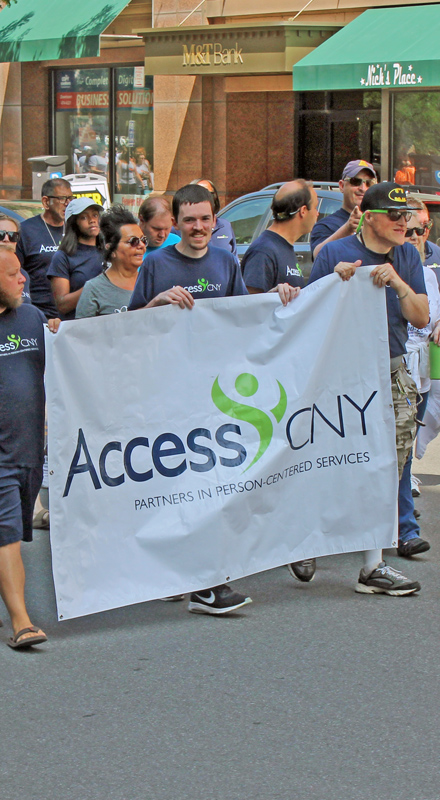Frequently Asked Questions (FAQs) about Disability
What is a disability?
A disability is defined as any health condition that makes it more difficult for someone to perform everyday living tasks and to participate in their community.
It is important to note that disability is a natural part of being human. According to the World Health Organization, nearly everyone will experience permanent or temporary disability at some point in their life.
What is ableism?
Ableism is a system of beliefs and actions that discriminates against and harms people with disabilities. It is based on the incorrect idea that people with disabilities are less valued able-bodied people (people without disabilities).
This video from the United Nations Human Rights Council explains ableism a bit more in depth and talks about its negative effects throughout history. Warning- the below video discusses ableism and eugenics.
How common is disability?
Disability is very common, especially among older adults. According to the World Health Organization, 15% of the global population has some form of disability. That is more than 1 billion people!
What is a developmental disability?
Developmental disability is an umbrella term for a wide range of conditions that effect someone’s physical, emotional or intellectual development. Some commonly known developmental disabilities are autism, cerebral palsy, Down syndrome and spina bifida.
Healthcare Decisions for Individuals With Disabilities
AccessCNY works with family members to ensure the needs of their loved ones are met at every stage of life.
This booklet on health care decisions highlights different options available for end-of-life care. The information is provided so that families can consider these options with their loved ones before any terminal illness. The guide serves as a summary of already existing regulations and is meant for informational purposes only.
The booklet covers:
- Healthcare proxies
- Medical decisions for individuals who are incapacitated
- Medical Orders for Life-Sustaining Treatment (MOLST)
- Requests to withhold or withdraw life-sustaining treatment
- Non-hospital Do Not Resuscitate (DNR) orders

